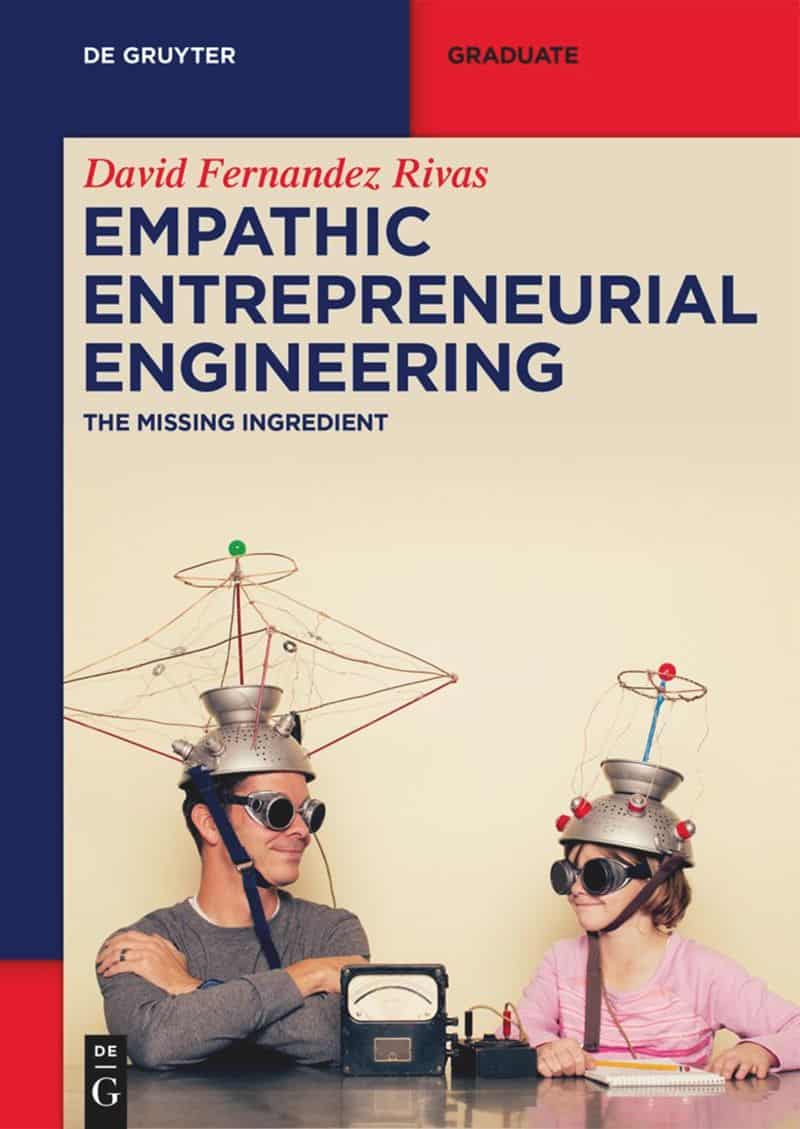Why Empathy Can Make You a Better Entrepreneur
It’s the superpower of budding entrepreneurs and the lifeline of innovation: Empathy is needed more than ever today to meet the great challenges of the 21st century.
Very often, I tell my engineering students that there are many brilliant ideas out there; however, if we never take action to make those ideas a reality, we may miss a great opportunity.
Of course, many of us – myself included – know the fear of someone labeling our ideas as nonsense. However, the alternative of not pitching an idea at all might be to have a brilliant person isolated from their surroundings and no progress is made. I believe that if we really want to change the world for the better we need to interact more, and stop avoiding risks.
On that note, I think it is the duty of a teacher to support their students going out into the world and help them grow, so they can address society’s big issues. This doesn’t necessarily mean starting up their own companies, but becoming “intrapreneurs” and changing existing companies from within. To get to this point, we need fresh perspectives that expand beyond stories of people who already succeeded many years ago.
Knowledge, persuasiveness, and empathy (KPE) are the basic ingredients of a new, simple framework I propose to clarify problems and solve them. These three ingredients can be used to initiate a needed change in the way students are educated in the fields of science, technology, engineering, and mathematics (STEM), but can definitely be applied to other disciplines as well.
“Brainpower and a willingness to get out of one’s comfort zone are a good place to start.”
By creating a self-help guide for students and professionals, I want to share the KPE framework and equip the problem-solvers of the future with a multipurpose innovation tool. To benefit from the framework there is no need to have access to fancy laboratories or to get in contact with specific institutions. Brainpower and a willingness to get out of one’s comfort zone are a good place to start.
KPE is universal because it is based on human qualities that have barely changed in the last couple of centuries. I have found this to be true by analyzing several real-life cases and interviews given by empathic entrepreneurial engineers. I strongly believe that their journeys may give inspiration to avid minds.
Why Empathy?
My own research at the University of Twente focuses on the interface of physics, chemistry and bioengineering. In this context, the most moving interactions I have had in the last 10 years were with parents of small children fighting Type 1 diabetes, and young adults who show enormous bravery in their daily activities, constantly pricking their skin and injecting with needles the insulin and glucagon they need to stay alive.
Understanding the actual limitations of state-of-the-art technology was only possible after I talked to these people, many of whom need better solutions. The information I gained from those conversations cannot be found in scientific journals or technological reports. It also cannot be easily obtained from doctors or medical companies. Empathy, however, enabled me to quickly focus all my efforts on the needs of those who will benefit from the technology we are developing, particularly needle-free injections.
“Entrepreneurship should be seen in a broader context than just creating a company or developing products or services purely for profit.”
Being empathic and persuasive in a positive context – excluding manipulation – are among the typically termed “soft skills.” However, I follow a growing trend of educators that advocate labeling them as “durable” skills instead. The idea behind such relabeling is that these skills enable students and professionals to become more innovative and perhaps entrepreneurs for the entire length of their professional paths. They are also “hard” to gain.
Entrepreneurship should be seen in a broader context than just creating a company or developing products or services purely for profit. An entrepreneur faces risks that include investing time or money in an idea, as well as failing against possible measures of success.
Empathy relates to the relationships that we need to foster with all stakeholders: present and future generations, humans, and other species. We need this durable skill to communicate among professionals, but also with other people, e.g., chemical plant operators or members of the community.
I believe that the combination of discipline-specific knowledge, persuasiveness, and empathy is crucial for students and professionals to become successful individuals. They are the ones who will have to tackle the challenges of the twenty-first century, and therefore it should be our collective effort to nurture these durable skills among all.
Check out this upcoming title from De Gruyter
[Title image by SolStock/E+/Getty Images]
